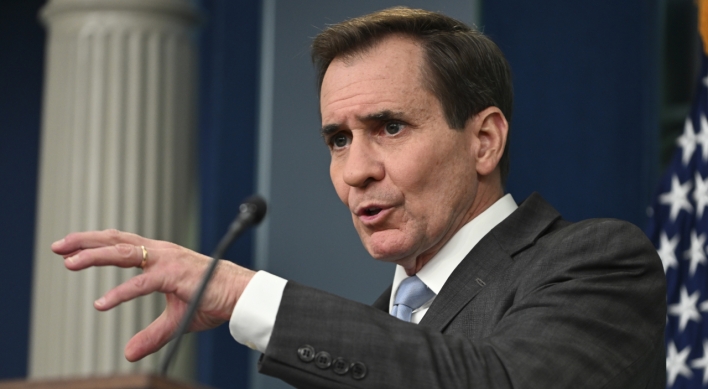Korea’s household credit surpassed the 900 trillion won ($801 billion) mark in the final quarter of last year, as household loans extended by non-bank institutions increased, the central bank said Wednesday.
Household credit totaled a record 912.9 trillion won as of the end of December, up 22.3 trillion won from three months earlier, according to the Bank of Korea.
Compared with one year earlier, the fourth-quarter household credit rose 7.8 percent, with the growth rate decreasing from the two preceding quarters as South Korea’s financial regulator stepped up efforts to curb the household debt.
Household credit refers to credit purchases and loans for households extended by financial institutions, including commercial lenders and mutual savings banks.
Household lending by banks and non-bank institutions reached 642.7 trillion won as of the end of 2011, up 14.1 trillion won from three months earlier.
The growth rate of household lending at all financial institutions accelerated in the fourth quarter from the preceding quarter on seasonal factors, the BOK said, as households increased spending to cover living costs and moving.
Household lending extended by non-bank institutions showed the largest gain among financial institutions, rising 7.9 trillion won during the final three months of 2011 from three months earlier.
Credit purchases stood at 54.8 trillion won as of December’s end, up 3.2 trillion won from the third quarter, also picking up its growth speed due to seasonal factors, the BOK said.
Heavily indebted households remain a source of concern for policymakers in South Korea. Asia’s fourth-largest economy needs to rely on private spending to fuel growth at a time when its exports are losing steam on the slowing recovery in developed countries.
The BOK froze the key interest rate at 3.25 percent for an eighth straight month in February on still-high inflationary pressure and nagging risks from abroad.
(Yonhap News)
Household credit totaled a record 912.9 trillion won as of the end of December, up 22.3 trillion won from three months earlier, according to the Bank of Korea.
Compared with one year earlier, the fourth-quarter household credit rose 7.8 percent, with the growth rate decreasing from the two preceding quarters as South Korea’s financial regulator stepped up efforts to curb the household debt.
Household credit refers to credit purchases and loans for households extended by financial institutions, including commercial lenders and mutual savings banks.
Household lending by banks and non-bank institutions reached 642.7 trillion won as of the end of 2011, up 14.1 trillion won from three months earlier.
The growth rate of household lending at all financial institutions accelerated in the fourth quarter from the preceding quarter on seasonal factors, the BOK said, as households increased spending to cover living costs and moving.
Household lending extended by non-bank institutions showed the largest gain among financial institutions, rising 7.9 trillion won during the final three months of 2011 from three months earlier.
Credit purchases stood at 54.8 trillion won as of December’s end, up 3.2 trillion won from the third quarter, also picking up its growth speed due to seasonal factors, the BOK said.
Heavily indebted households remain a source of concern for policymakers in South Korea. Asia’s fourth-largest economy needs to rely on private spending to fuel growth at a time when its exports are losing steam on the slowing recovery in developed countries.
The BOK froze the key interest rate at 3.25 percent for an eighth straight month in February on still-high inflationary pressure and nagging risks from abroad.
(Yonhap News)
-
Articles by Korea Herald





![[Music in drama] Rekindle a love that slipped through your fingers](http://res.heraldm.com/phpwas/restmb_idxmake.php?idx=644&simg=/content/image/2024/05/01/20240501050484_0.jpg&u=20240501151646)



![[New faces of Assembly] Architect behind ‘audacious initiative’ believes in denuclearized North Korea](http://res.heraldm.com/phpwas/restmb_idxmake.php?idx=644&simg=/content/image/2024/05/01/20240501050627_0.jpg&u=20240502093000)









![[Today’s K-pop] Stray Kids go gold in US with ‘Maniac’](http://res.heraldm.com/phpwas/restmb_idxmake.php?idx=642&simg=/content/image/2024/05/02/20240502050771_0.jpg&u=)